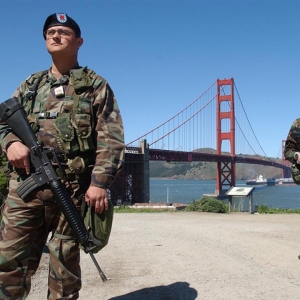
At a time of shrinking budgets and a fast-growing deficit, the need to rationalize U.S. investment in counterterrorism represents a rare area of bipartisan agreement. The Trump administration’s National Defense Strategy noted that “interstate strategic competition, not terrorism, is now the primary concern in U.S. national security,” while the Biden administration’s interim national security strategy underscores the threat from “great powers and regional adversaries” as much as “non-state actors and extremists.”
In a recently published paper for The Washington Institute’s Transition 2021 series, Matthew Levitt explores what a rationalized U.S. counterterrorism posture should look like and what is needed to operationalize such a shift. To discuss these issues, the Institute hosted a virtual Policy Forum with Katrina Mulligan, Christopher Costa, and Dr. Levitt.
Katrina Mulligan is acting vice president for national security and international policy at the Center for American Progress. Previously, she served in the Justice Department’s National Security Division as well as the National Security Council, the Office of the Director of National Intelligence, and the National Counterterrorism Center.
Christopher Costa, the executive director of the International Spy Museum, served as special assistant to the president and senior director for counterterrorism at the National Security Council during the Trump administration. He is a thirty-four-year veteran of the Defense Department, including twenty-five years with the Army working on counterintelligence, human intelligence, and special operations.
Matthew Levitt is the Fromer-Wexler Fellow and director of the Reinhard Program on Counterterrorism and Intelligence at The Washington Institute. Previously, he served as deputy assistant secretary for intelligence at the Treasury Department and as an FBI counterterrorism analyst.
.washingtoninstitute.
